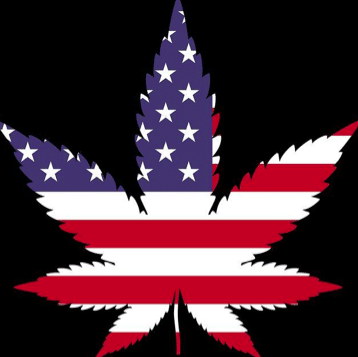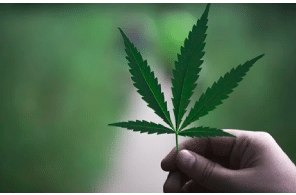Cannabidiol, commonly abbreviated as CBD, is a well-known cannabinoid making headlines due to its potential therapeutic and medicinal properties. Ever since the 2018 Farm Bill initiation, CBD manufacturers have received a green signal to create hemp-derived variants of this cannabinoid.
Although it is legal, not all U.S States allow it to be manufactured and sold within their boundaries. Every state has laws that ultimately define the selling and possession of cannabis and its other synthetic derivatives.
Likewise, the CBD law in the country has not been uniformly accepted or regulated. States with different views on this cannabinoid back their intentions with various compelling reasons. To sum up their contrasting status regarding CBD, we have compiled this article concerning the States that consider it—
- Fully legal
- Legal under specific restrictions
- Legal for medical purposes only
- Illegal/unclear cases
What is the Farm Bill 2018?
The bill that became a deciding factor for the production and distribution of cannabidiol was the Farm Bill of 2018. It validated CBD’s way to become the first legalized cannabinoid. This bill makes it legal to source CBD only from the hemp plant; moreover, it should contain no more than 0.3% THC, effectively making it a lawful cannabinoid.

Which are the states that consider CBD for sale and possession as a legal substance? What are their reasons for this approval?
To begin with, there is a higher ratio of States that allow the production of CBD products than the ones that do not. However, some of them only permit the distribution of their products and not the growing of hemp plants on their lands. They only enable its items and do not allow their raw form to be sold.
The following states have legalized cannabidiol both for therapeutic and recreational purposes. Even the sourcing of this non-psychoactive compound does not seem to impact its legal status. These states are—
- Arizona
- California
- Colorado
- Illinois
- Massachusetts
- Montana
- Nebraska
- Nevada
- New Jersey
- New Mexico
- New York
- Vermont
- Virginia
- West Virginia
The states listed above permit CBD products like Plain Jane CBD oil. In some way or another, these states acknowledge the pharmaceutical potential of cannabidiol and its infused products. The individual state laws are in accordance with the 2018 Farm Bill and the FDA regulations.
Which states allow CBD items but with certain restrictions and regulations?
Even though the majority of states allow the possession and manufacturing of CBD goods without any restriction, there are States that have some restrictions on it. The following states have legalized the distribution of cannabidiol products but with some regulations. These include prohibitions over the source material of CBD, amount of THC, consumable variants, etc.
The contrasting judgments displayed by these states are respectively consequential. These states may have legalized CBD, but with certain exceptions. These states are—
- Alabama ( as a controlled substance for seizure treatment)
- Florida (CBD with <0.8% THC)
- Georgia (All cannabidiol products except vape juices)
- Hawaii (only for medicinal purposes)
- Indiana (CBD with <0.3% THC)
- Iowa ( its products must not contain a high concentration of THC)
- Maine (has legalized only the FDA authorized CBD products for medicinal purposes)
- Minnesota
- Mississippi
- Missouri
- New Hampshire
- North Dakota (CBD should be derived from industrial hemp)
- Oklahoma
- Oregon (Hemp-derived products only)
- Rhode Island
- South Dakota (CBD items are allowed for possession and are legal only under the FDA regulations)
- Tennessee (distribution of CBD oil only. No other consumables)
- Texas
- Wyoming (CBD products are legal. Provided, they contain <0.3% THC)
What are the justifications that the above States put forward?
Every state in the above category has a distinguished set of laws with respect to cannabidiol. Some deny the utilization of consumable CBD, and some allow only products with negligible traces of Delta-9 THC. However, it is possible to buy and sell pharmaceuticals or edibles containing cannabidiol in these states. Provided their legal criterion is satisfied.
Which states have allowed CBD only for medical utilization?
Several states have pronounced medical and recreational usage of CBD as legal. However, the specifications remain solely under state laws. The states listed below authorize this cannabinoid regarding the FDA guidelines. However, they dictate its extended medicinal purposes. The states are—
- Alaska (CBD sourced from hemp)
- Arkansas (all except hemp flower)
- Connecticut
- Delaware
- Kansas
- Kentucky
- Louisiana
- Maryland
- Ohio
- Pennsylvania
- South Carolina (only for medical advantages)
- Washington DC
- Wisconsin
These states have pronounced CBD products to be lawful only when used for the objective of therapeutic use. All consumable cannabidiol products are restricted from being distributed or sold in these particular states.
States with illegal status or unclear jurisdiction on CBD.
Cannabidiol processed out from Industrial Hemp is legal in all 50 States. However, States can decide the fate of CBD products on their own. The unclear viewpoints of some states indicate the inadequacy of scientific facts concerning this cannabinoid. States that have decided to put a hold on this cannabinoid include—
- Idaho– CBD products are illegal if they contain any traces of THC.
- North Carolina– The laws are limited and do not clearly have a say about CBD products. Some forms are yet to be legalized.
- Michigan– The state has legalized the plantation of industrial hemp but does not allow the production of consumable CBD items.
- Utah– Even though CBD oil with <0.3% THC is legal, there are certain consumable CBD variants that are prohibited.
Conclusion.
Ever since its introduction as a cannabis derivative, all sorts of individuals are drawn to it, looking for an escape from the usual “high” of THC. Even though cannabidiol has no psychoactive properties, its relation with the cannabis species has no good.
The researched data has not yet unraveled the medicinal aspects of cannabidiol. That justifies the uncertainty that some states go through while making CBD laws.




